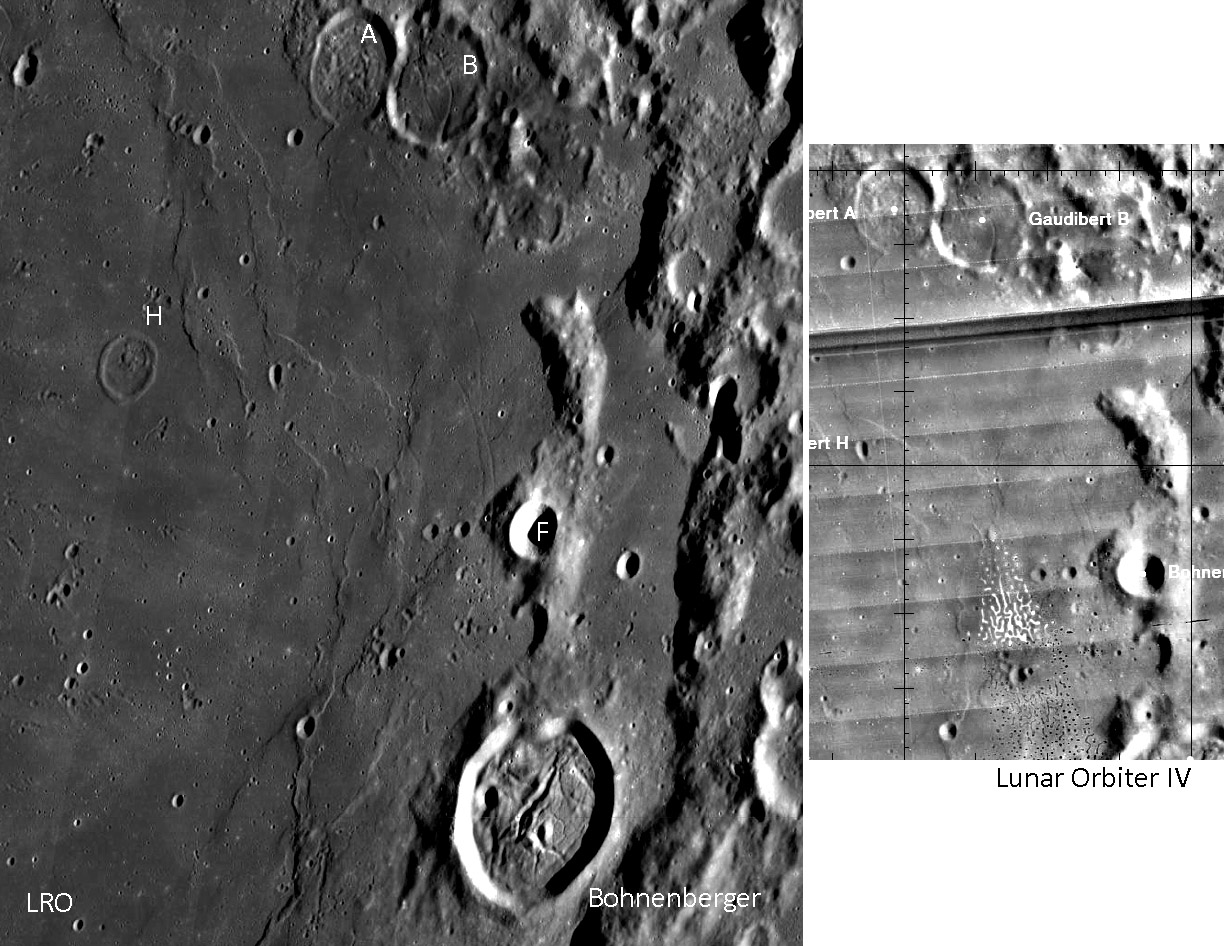Difference between revisions of "February 27, 2011"
| Line 18: | Line 18: | ||
<br /> | <br /> | ||
<strong>Related Links</strong><br /> | <strong>Related Links</strong><br /> | ||
| − | Rükl plate [https://the-moon.us/wiki/R%C3% | + | Rükl plate [https://the-moon.us/wiki/R%C3%BCkl_47 47]<br /> |
<br /> | <br /> | ||
<hr /> | <hr /> | ||
Revision as of 17:46, 13 October 2018
Nectaris Rilles

left image from LRO WAC Earthside moasic (NASA/GSFC/Arizona State University) and right image from Lunar Nomenclature Atlas
What? You don't know of the Nectaris Rilles? Nectaris has no obvious concentric rilles (nor any other kind except on crater floors),
and the explanation has been that Mare Nectaris is too thin to depress the basin floor, which causes the fracturing near the edges
that make the concentric rilles. Humorum has broad ones, and Tranquillitatis' are narrow and just imageble. But if you look at the
Clementine image of Nectaris no rilles are seen, and Lunar Orbiter IV barely shows two faint rilles just west of Bohnenberger F. Now,
the new LRO WAC mosaic of the Moon's Earth-facing hemisphere reveals that the rilles are very much real and continue northward
around the mare edge nearly to Gaudibert B. I couldn't detect them any where else around Mare Nectaris, so these may be all that
formed or others were covered by later deposits. These concentric rilles show that the load of mare basalts was sufficient to cause
the center of the basin to subside enough to make these very delicate cracks.
Chuck Wood
Related Links
Rükl plate 47
Yesterday's LPOD: Colorful Micro-Topo
Tomorrow's LPOD: No Satellite Needed
COMMENTS?
Register, Log in, and join in the comments.



